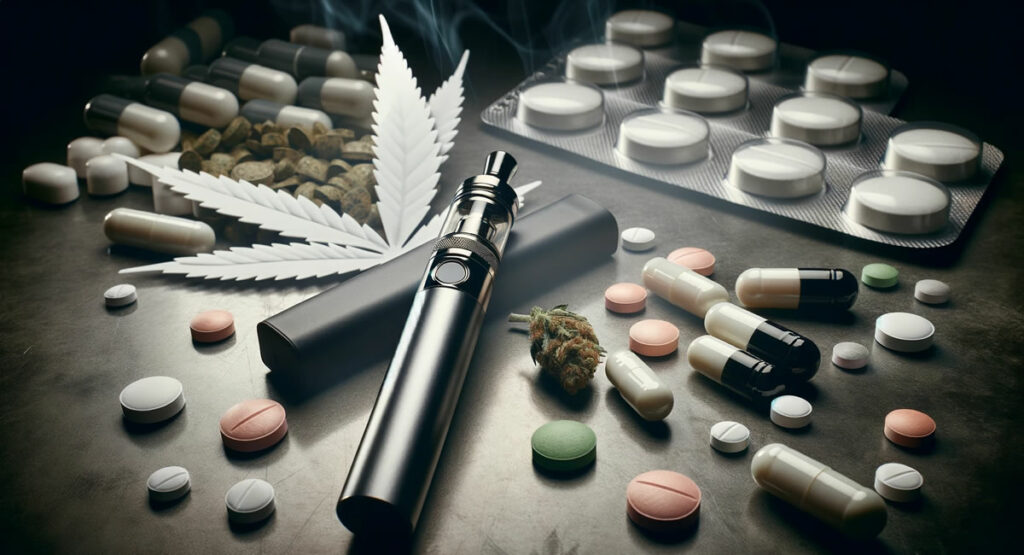In a concerning development, researchers from Kings College London have detected the presence of xylazine, a potent sedative, in cannabis vapes and counterfeit pills intended for treating pain, insomnia, and anxiety in the United Kingdom. This discovery raises serious health concerns, as xylazine, commonly used as a veterinary tranquilizer, has been linked to overdose deaths and severe complications when mixed with other drugs.
The Growing Prevalence of Xylazine
According to the study published on Wednesday, the researchers identified xylazine in samples collected from 16 individuals in the U.K., including 11 who had died. The drug’s prevalence has been on the rise since 2022, when the first overdose death from xylazine was reported in the country.
Dr. Caroline Copeland, the senior author of the study, expressed alarm over the findings, stating, “Xylazine has already penetrated the U.K. illicit drug market and is not limited to heroin supplies. Urgent action is needed to protect both people who use heroin and the wider population of people who use drugs from its acute and chronic health harms.”
Xylazine’s Dangers and Complications
Xylazine, a non-opioid sedative, has been found in the illicit drug supply in the United States for years, often mixed with heroin or fentanyl. The drug has been implicated in thousands of overdose deaths nationwide, according to data from the Centers for Disease Control and Prevention.
When combined with other drugs, xylazine can cause overdose and death. Furthermore, injecting the drug can lead to skin ulcers and resulting complications, including infections that may require amputation.
Implications for Drug Users and Public Health
The discovery of xylazine in cannabis vapes and counterfeit prescription drugs like codeine, alprazolam (Xanax), and diazepam (Valium) tablets has far-reaching implications for public health. As Dr. Copeland pointed out, “This is cause for alarm as a much wider population of people who use drugs beyond heroin users will be exposed to its harms.”
Dr. Benjamin Caplan, M.D., the chief medical officer at cannabis consultations provider CED Clinic, echoed these concerns, stating, “These counterfeit products, often look like products sold from reputable sources, and so they may appear safe, but in fact may pose a grave threat to unsuspecting consumers.”
Calls for Urgent Action and Harm Reduction
In response to the findings, a U.K. government spokesperson announced plans to classify xylazine as a class C drug, which would result in up to 14 years in prison, a fine, or both for anyone supplying the substance.
However, study co-author Dr. Adam Holland, a co-chair of the drugs special interest group at the University of Bristol, emphasized the need for a more comprehensive approach to addressing the issue. “We need to expand the range of harm reduction interventions available for people who use drugs, including drug checking and overdose prevention centers, to give them the opportunities they need to stay safe,” Holland stated.
As the prevalence of xylazine in illicit drugs continues to grow, it is crucial for public health officials, healthcare providers, and harm reduction organizations to work together to raise awareness, implement effective interventions, and provide support for those at risk of exposure to this dangerous substance.
- Myanmar Enacts Total Ban on E-Cigarettes and E-Shisha - February 25, 2026
- UK Announces Mandatory Vape Tax and Duty Stamps from 2027 - February 10, 2026
- Sri Lanka Travel 2026: Total Ban on Cigarettes & Vapes - February 5, 2026


